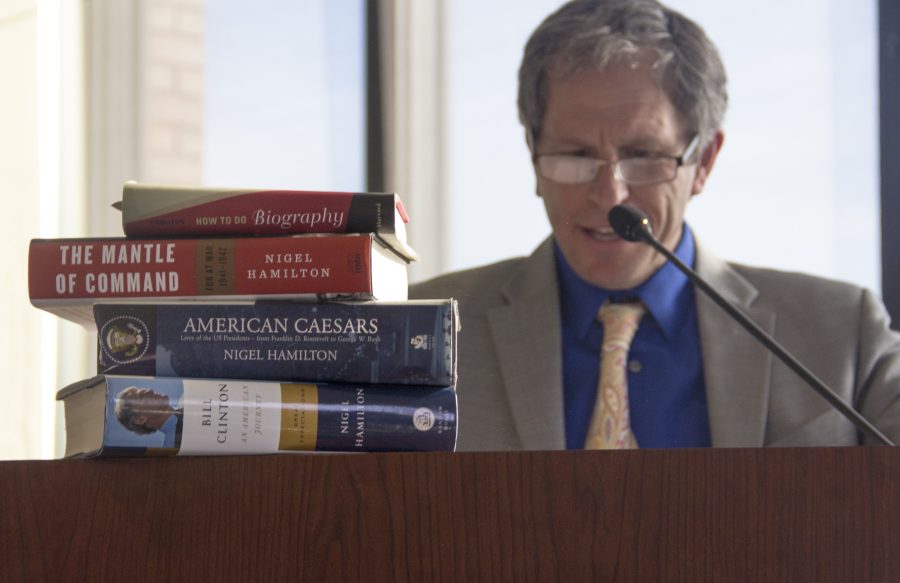On Sept. 26, the University of Massachusetts Boston’s John W. McCormack Graduate School of Policy and Global Studies welcomed critically acclaimed British biographer, Nigel Hamilton.
Hamilton is most well-known for his biography titled “Monty: The Making of A General” on Field Marshal Bernard Montgomery, a British commander during World War II. Hamilton received the prestigious Whitbread Prize in 1981 and the Templer Medal for Military History in 1986.
Since then, Hamilton has also published biographies on John F. Kennedy and Bill Clinton. One of his most recent works, “American Caesars: Lives of the Presidents from Franklin D. Roosevelt to George W. Bush,” analyzes the leadership of twelve American presidents and critiques their most groundbreaking choices in political history.
Hamilton has also been a longtime senior fellow at UMass Boston’s McCormack Graduate School and has been named a visiting history professor of UMass Boston. During Hamilton’s first visit to UMass Boston in 1988, he came with the intention to work on his book titled “JFK: Reckless Youth.” According to Hamilton, at the time of the biography’s publication, his book “caused a stir.”
Fast forward to his visit in 2017 with a view of the Boston Harbor that afternoon, students and faculty gathered to listen to Hamilton’s lecture and refreshments were provided. Dean of the Graduate Global Studies Program, David Cash, formally introduced Hamilton and his most notable works to the audience as he stacked Hamilton’s hefty biographies on by one: “Even a brief biography of this biographer is packed with accomplishment,” said Cash. Cash also formally welcomed to the audience the new Associate Dean and Professor of the McCormack Graduate School, Rita Kiki Edozie.
Hamilton made an appearance to discuss his most recent project, a biography on FDR’s and Trump’s leadership styles in foreign policy. Hamilton is currently finishing the third volume of the book. This recent project, according to Cash, will attempt to understand the shift in foreign policy under FDR’s leadership and now, under the Trump administration.
According to Cash, ultimately, Hamilton’s current project will help readers to understand “the connection between our past, our history, and what’s happening now. That shift will cause momentous, historical consequences, not just for [the U.S.], but for our allies.”
Hamilton opened to the audience with a statement: “I would like to say something today as a historian, an American citizen, and as someone who grew up in an empire that was not only declining but falling.” Hamilton spoke of this in regards to the British Empire during World War II. “In other words, I feel today a sense of deja vu of having been here before.”
Hamilton explained that the rise of the American empire began during WWII under FDR’s administration by accident, when the democratic organization of Allies—which made up more than 75 percent of the Earth’s population—the U.S. Military, and the welcoming of foreigners were “necessities” in the United States.
Hamilton also explained that as long as the four most powerful military nations—China, Russia, the United States, and the United Kingdom—stick together as allies, “there will be no possibility of an aggressor nation arising to start another war.”
According to Hamilton, Trump’s current administration is “a family empire, not the nation’s.” He also added that the US, in consequence of Trump’s leadership, will not only suffer from “economic isolationism” but also “military isolationism…” If American leaders are wise, there is a chance that the U.S. could recover, just as the Byzantine empire did when it retracted back to relying on its allies in the face of war.
“If the United States fails to find a leader like FDR, then we shall have a tough time in relation with our competitive nations” Hamilton said.

